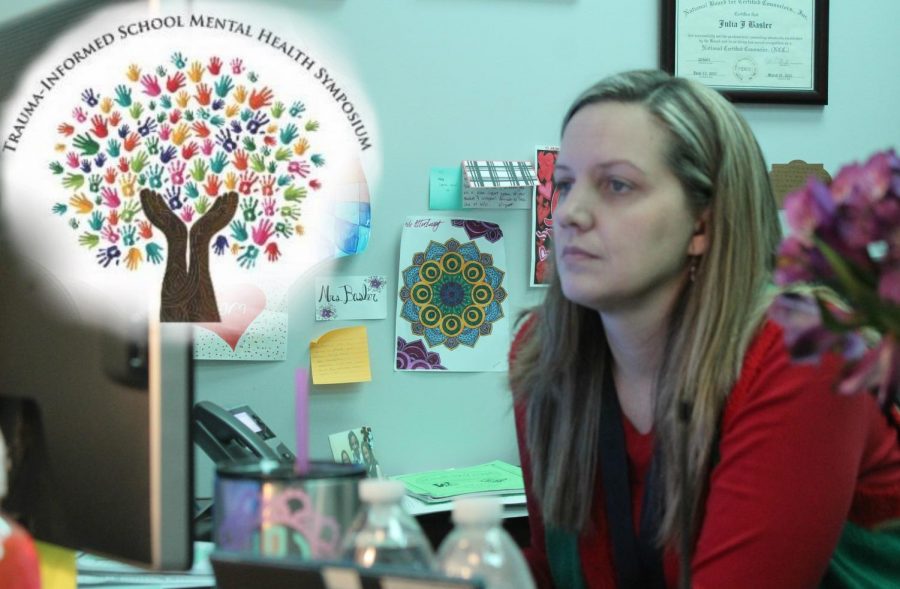Learning to be Mindful
School districts worldwide are becoming trauma-informed
Julia Basler Head of the Guidance Department working at her desk
St. Charles schools are experimenting with becoming trauma-informed to help students and improve their learning, as well as try to slowly improve their home lives if they are going through trauma outside of school. Head of the Guidance Department Julia Basler, says that it’s not just our school that is starting this initiative, there are schools around the nation that are starting to implement this.
“It is an initiative around the nation, but our school district got invited to participate in a trauma training that is four different trainings throughout last school year to find out what being a trauma-informed school would be and what it would look like just to find out about trauma and how it affects students,” Basler said.
However, it is not an easy process becoming a trauma-informed school. The process requires lots of trainings and meetings to get the teachers enlightened on what being a trauma-informed school would look like and how it would act for students, parents, and teachers once it is all said and done. However, this process doesn’t end, and it just continues to improve over time. Principal Jeff Walker knows this is not a short and easy process.
“You start with information. We have to educate ourselves and the staff on being trauma-informed. Next is what we think a trauma-informed school looks like. What we have to put in place to meet those kids’ needs and to be a trauma-informed school,” Walker said. “We are very early in the process, so as the years go on, we hope to improve.”
With this process beginning this year, District Social Worker Dawn Tranen says that this process will have a good outcome for St. Charles Schools and it will also be a good way for students to have a connection with their teachers.
“I’m looking forward to it because I think it will be only positive, a lot of being trauma-informed and having students feel like they are cared for, and have someone they could reach out to,” Tranen said. “It’s really about building relationships with students and treating them as individuals and then also cooperating with the students to figure out the problem.”



